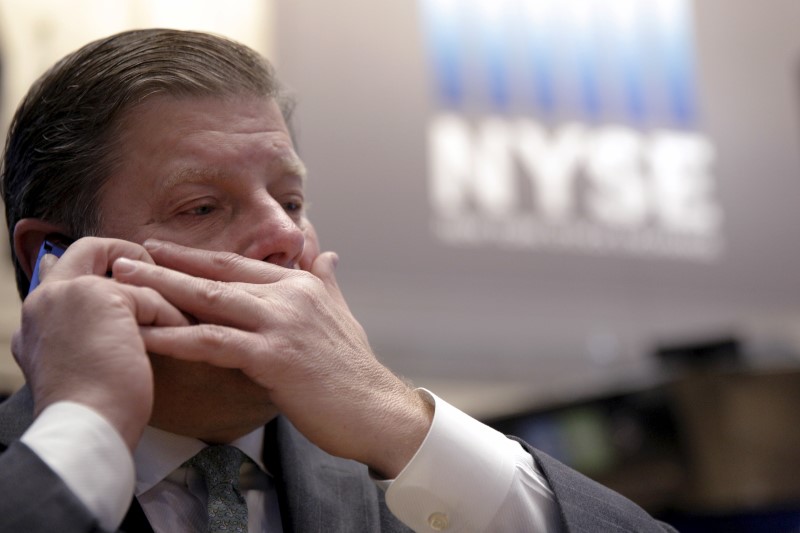 © Reuters.
© Reuters.
By Yasin Ebrahim
Investing.com -- The Dow on Friday suffered its biggest weekly loss since June as fears of contagion swept through the banking sector after regulators closed SVB Financial to protect deposits on the heels of reports that the beleaguered bank's efforts to secure funding had failed.
The Dow Jones Industrial Average fell 1.1%, or 345 points, taking losses for the week to 4%. The Nasdaq Composite was down 1.8%, and the S&P 500 fell 1.5%.
SVB Financial Group (NASDAQ:SIVB) was closed by regulators and its deposits placed under control of regulators to protect depositors.
The news sparked widespread fears of a spillover into the broader banking sector, with regional banks, which tend to have less diversified funding sources than their larger peers, in the firing line.
Signature Bank (NASDAQ:SBNY) closed 23% lower and First Republic Bank (NYSE:FRC) fell more than 14%, while JPMorgan Chase & Co (NYSE:JPM) and Wells Fargo & Company (NYSE:WFC) were in the green amid expectations that depositors will seek safety in larger banks.
Some expect the collapse of the SVB to sway the Fed's thinking on monetary policy as it is the first sign of something breaking following the aggressive pace of rate hikes.
"It [the SVB collapse] is the first thing that has broken," Will Rhind, CEO and Founder of GraniteShares told Investing.com’s Yasin Ebrahim in an interview Friday. "The Silicon Valley Bank, the 18th largest bank in the U.S. wasn't a tiny, insignificant institution and the collapse was a direct consequence of rising rates."
Investors reined in the bets on a 50 basis points rate hike in March to 38% from nearly 80% earlier this week, according to Investing.com’s Fed Rate Monitor Tool.
The turmoil in banks triggering worries about a systematic banking crisis forced investors to rethink their bets on larger rate hikes at the Federal Reserve’s March meeting even as job gains in February topped estimates.
The U.S. economy created 311,000 jobs last month, well above expectations, though there were some signs of softening in the labor market including a tick up in the unemployment rate and slower wage growth.
“It is hard to say that cracks are forming in the labor market when payrolls increase 311k, but it seems like we are at least at the "beginning of the beginning" of the process of seeing the labor market soften,” Jefferies said in a note.
Treasury yields, which had jumped to their highest level in more than a decade earlier this week, fell sharply, helping the broader market pare some losses.
On the earnings front, DocuSign's (NASDAQ:DOCU) better-than-expected quarterly results were overshadowed by an announcement that its chief financial officer Cynthia Gaylor would step down later this year.
Oracle Corporation (NYSE:ORCL), meanwhile, reported mixed fourth-quarter results as revenue missed Wall Street expectations, sending the stock more than 3% lower.
Following the results, Goldman Sachs reiterated its sell rating on Oracle amid worries about market share losses in the database market, expectations for a slowdown in subscription services revenue and the impact of capital expenditure pressure on margins.
Elsewhere Gap (NYSE:GPS) reported a wider quarterly loss and guidance which fell short of Wall Street estimates. Credit Suisse described the guidance from the retailer as “sobering,” but said there was “less risk of further downward revisions beyond the initial guidance.”

